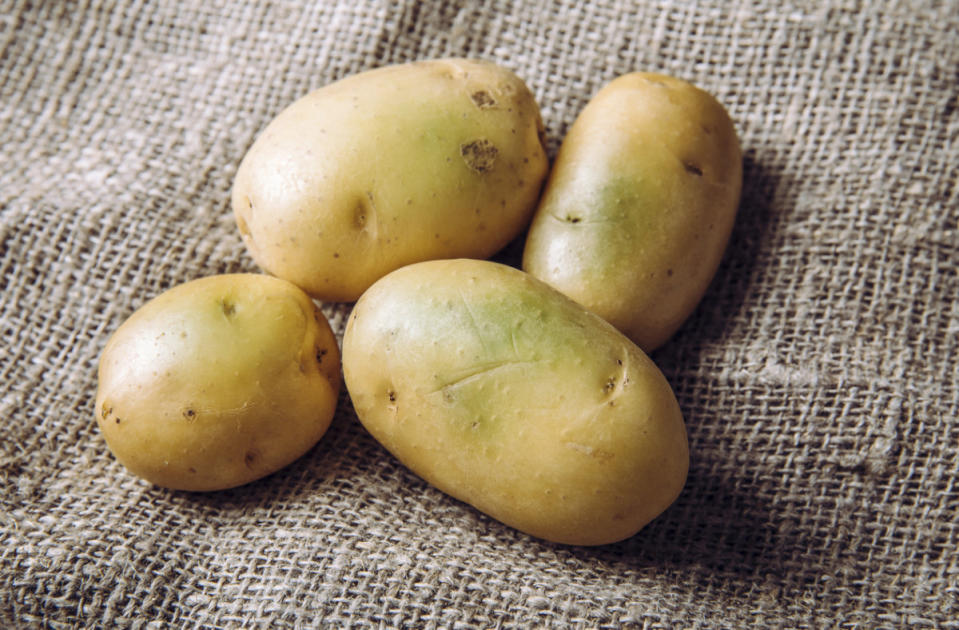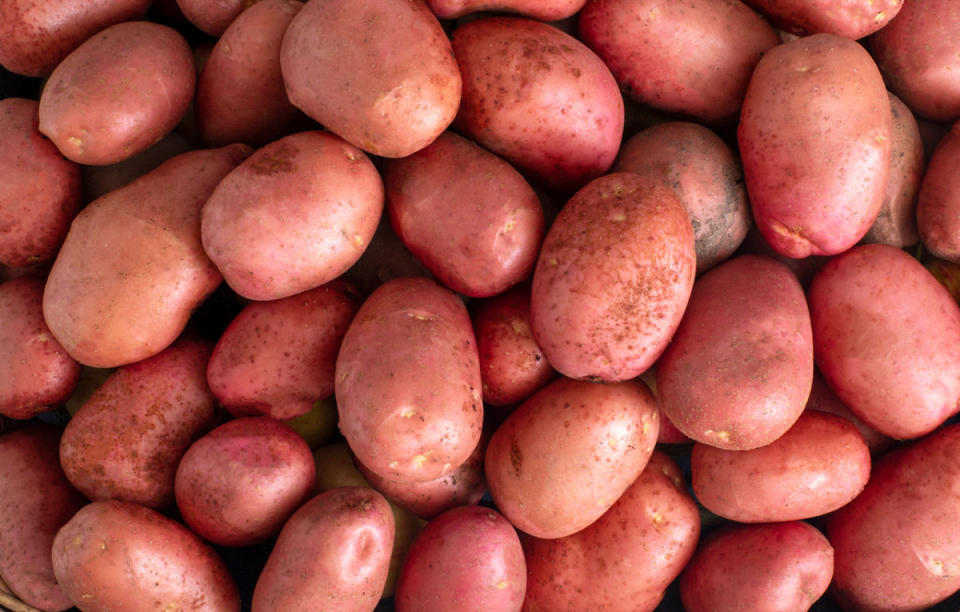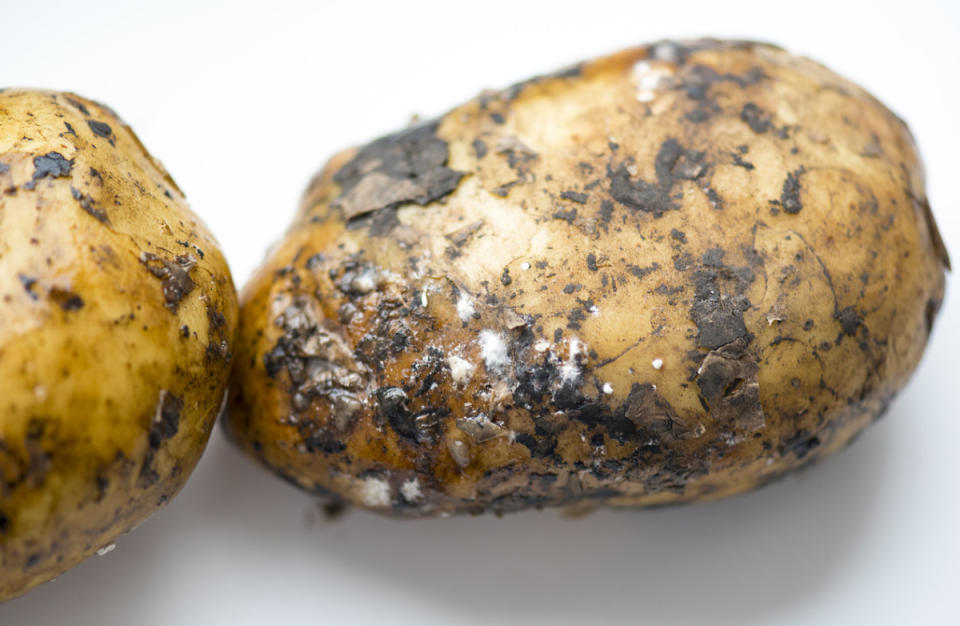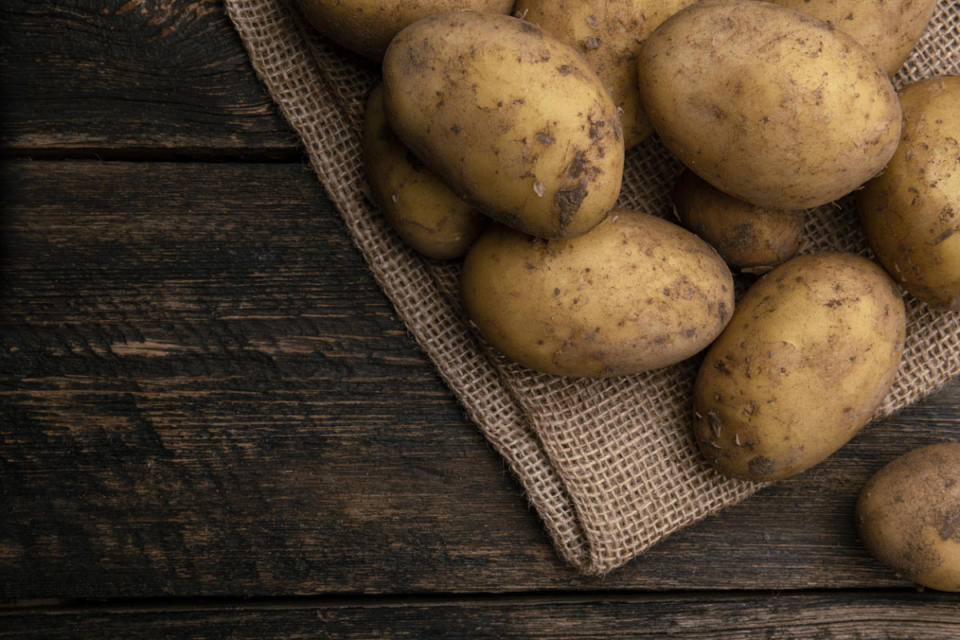Six Ways To Tell if a Potato Is Bad (And How to Properly Store Them)

Potatoes on a countertop
It’s a tale as old as time: You buy a bunch of potatoes at the grocery store, leave them on your counter and then promptly forget about them for a few weeks. Until you have a craving for French fries or potato salad, that is. You grab the potatoes, but notice some unsightly lumps and bumps that definitely weren’t there when you bought them.
You ask yourself, could these potatoes still possibly be safe to eat? We’re here to clear things up once and for all. Here’s how to tell if a potato is bad.
Related: 30 Tasty Potato Recipes
How Long Do Potatoes Last, Really?
First things first, let’s break down the shelf life of these yummy tubers. In general, raw potatoes that are stored in a cool, dark place can last two to three months. When stored at room temperature, though, raw potatoes will typically only last one to two weeks.
Related: How Many Potatoes Do You Really Need Per Person for Dinner?
How To Tell if a Potato Is Bad: 6 Signs to Watch Out For
Not exactly sure if that spud you bought ages ago is still any good? You should toss that potato if:
It’s soft and mushy: A raw, whole potato should be firm to the touch. Extreme mushiness means your potato has likely gone bad.
The skin is shriveled and there are dark spots: The skin of a potato should be tight and uniformly even in color. If your potato looks all wrinkly—and there are black spots or bruises on it—you should throw it away.
There are visible signs of mold: Mold is an absolute no-go! As the United States Department of Agriculture (USDA) notes, mold can potentially make you sick. And you can’t just cut it off—invisible spores could be growing elsewhere in the potato. Toss that tater!
It smells bad: Raw potatoes should have an earthy aroma. If they’re super-stinky and pungent, that means they’ve probably started to rot or mold on the inside. Yuck!
It’s green: Green isn’t a color you want to see on the outside of your potato. According to the University of Idaho, potatoes will naturally turn green when exposed to light. The green hue comes from chlorophyll, which is generally harmless—but when a potato turns green, there’s usually an increase in solanine, a compound that can be harmful when eaten in large quantities.
It has sprouts: If your potato has sprouted, that’s a sign it’s about to go bad. When potatoes start to sprout, their levels of glycoalkaloid compounds rise. Eating too much glycoalkaloid can lead to tummy pain and even vomiting and diarrhea. The National Poison Center suggests tossing potatoes that have grown sprouts.
Potatoes Should Never Look Like This:

iStock
Related: Best Chicken and Potato Recipes
How To Tell if a Sweet Potato Is Bad

iStock
There are a few tell-tale signs a sweet potato has spoiled. If a sweet potato is soft and mushy, has black or brown spots, smells bad or is moldy, then it’s no longer safe to consume.
Related: 8 Health Benefits of Sweet Potatoes
How To Tell if a Red Potato Is Bad

iStock
You can tell if a red potato is bad by how it looks and smells. Shriveled skin, dark spots, mushy texture, pungent odor, and sprouts or mold all mean a red potato is bad.
Related: 67 Best Red Potato Recipes
How To Tell if a Russet Potato Is Bad
Similar to other types of potatoes, russet potatoes are considered bad if they’ve gone soft, developed bruising, have mold or sprouts, are stinky or are turning green.


iStock
How To Store Potatoes So They Stay Fresh Longer
Now that you know how to tell if a potato is bad, it’s time to brush up on storing spuds so you can ensure yours stay fresher longer.
Up next: 40 Crazy Good Potato Recipes Every Spud Lover Will Appreciate
The best way to store raw potatoes is to keep them somewhere cool, dark and dry. Think: a pantry, cupboard or cabinet away from any sunlight.
Doing this can help delay them from sprouting and developing mold. Just don’t put raw potatoes in the freezer. This can actually cause them to soften and turn brown.
Up next: Dolly Parton’s Secret Ingredient for the Best-Ever Potato Salad
Solve the daily Crossword

